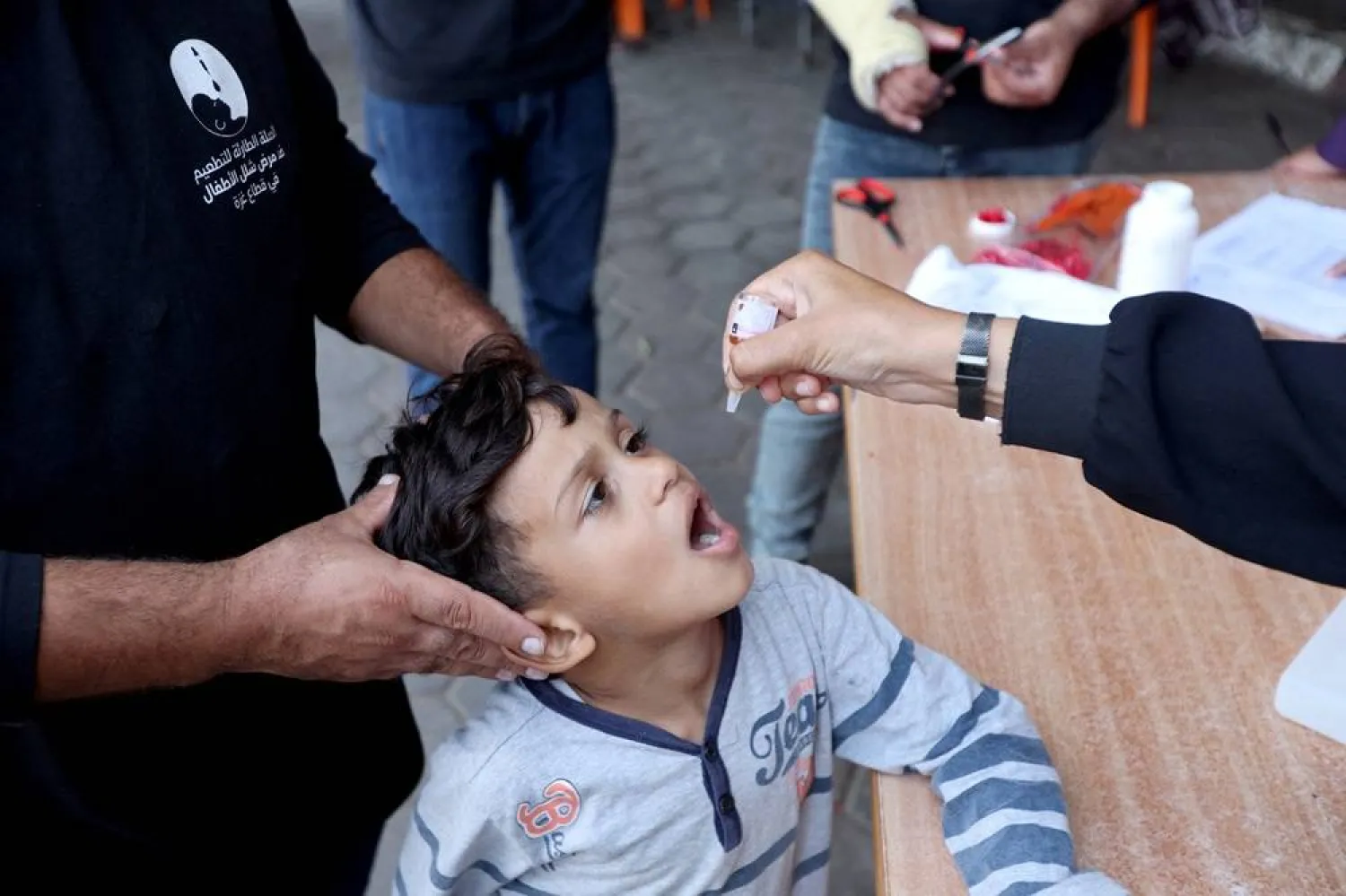The World Health Organization (WHO) on Wednesday urged Israel to ensure the necessary conditions to finish the job of vaccinating Gaza's children against polio, after reaching more than 150,000 with the required second dose.
Despite continuing Israeli military operations in some areas of the Palestinian territory, the second round of a polio vaccination campaign, aiming to reach more than 590,000 children under the age of 10, got under way on Monday.
"The total number of children who received a second dose of polio vaccine in central Gaza after two days of vaccination is 156,943," WHO director-general Tedros Adhanom Ghebreyesus said on X.
"The vaccination continues today. At the same time, 128,121 children received vitamin A supplements.
"We call for the humanitarian pauses to continue to be respected. We call for a ceasefire and peace," he said.
- 'Humanitarian pauses' -
As during the initial round of vaccination last month, the second will be divided into three phases, helped by localized "humanitarian pauses" in the fighting: first in central Gaza, then in the south and finally in the hardest-to-reach north of the territory.
Each phase is due to take three campaign days, along with one catch-up day for monitoring and for vaccinating any children who were missed.
"A minimum of two doses of vaccine are needed to interrupt poliovirus transmission. This will only be achieved if at least 90 percent of all eligible children are vaccinated in all communities and neighborhoods," Tedros told a press conference.
The vaccination drive began after the Gaza Strip confirmed its first case of polio in 25 years.
The disease has re-emerged in besieged Gaza, where the war has left most medical facilities and the sewage system in ruins.
Most often spread through sewage and contaminated water, poliovirus is highly infectious. It can cause deformities and paralysis, and is potentially fatal, mainly affecting children under the age of five.
- North Gaza concerns -
Rik Peeperkorn, the WHO's representative in the Palestinian territories, said the UN health agency was closing in on its target of reaching 180,000 in the central zone with a second oral polio vaccine dose.
Speaking from Gaza, he said 293,000 children needed to be reached in the southern zone and 119,000 in the north.
"We are concerned about the north because of the repeated evacuation orders, including for the hospitals and populations around that," he told the press conference.
"We have been successful with polio vaccination -- against all odds -- in the first round. We made a good start; we want to finish this job.
"We are very clear -- crystal clear -- that we will need an area-specific humanitarian pause, and this is also our assumption that we will get an area-specific humanitarian pause for the whole north of Gaza."
Peeperkorn said that above all, parents needed to be able to bring their children to the mobile and fixed vaccination points in safety.
"We cannot afford to falter in the second round. We need to stop this transmission of the poliovirus," he said, adding that WHO was "hopeful, and convinced, that this is going to work".
Israel launched a military campaign in Gaza after the October 7, 2023, attack by Hamas resulted in the deaths of 1,206 people in Israel, mostly civilians, according to an AFP tally of official Israeli figures, including hostages killed in captivity.
The Israeli campaign has killed 42,409 people, the majority civilians, according to figures from the health ministry in the Hamas-run territory which the UN considers reliable.









